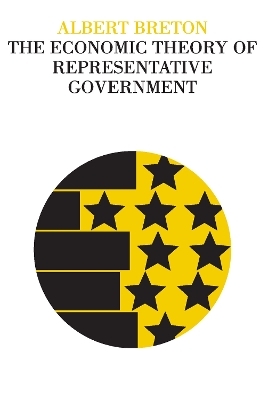
The Economic Theory of Representative Government
AldineTransaction (Verlag)
978-0-202-36157-4 (ISBN)
The author's analysis is cast in a relatively simple demand, supply and demand-supply-equilibrium framework, using the tools of marginal and stability analysis to explain the forces that influence and determine the flow of resources as they are allocated between competing ends in the public sector. The book presents a model of demand by citizens, who are assumed to be maximizing their desires for specific public policies and private goods, and a model of the supply of public policies by politicians and bureaucrats, who are assumed to be maximizing the probability of their re-election and the size of their budgets. Breton defines government policies and the institutional framework for collective choices in terms that render them amenable to further analysis.
The main accomplishment of Breton's theory is that it provides the ability to analyze the interaction of individuals and generates testable propositions about the behavior of these individuals as well as about the behavior of public expenditures and taxation in more aggregative terms. In this way the book will be useful to students of economics, economists, and those interested in economic theory.
Albert Breton is professor emeritus of economics at the University of Toronto. He was once director of research for The Social Research Group in Montreal. His articles have been widely published in major journals and some of his recent books include Rational Foundations of Democratic Politics and Political Extremism and Rationality (with Gianluigi Galeotti, Pierre Salmon, and Ronald Wintrobe) and Bijuralism: An Economic Approach (with Michael J. Trebilcock).
I: Background and Definitions; 1: An Introduction; 2: The Output of Governments; 3: The Institutional Framework; II: The Structure of Demand; 4: The Origins of Political Action; 5: The Instruments of Political Participation; 6: The Demand for Government Policies; III: The Structure of Supply; 7: The Behavior of Political Parties; 8: Technical Constraints on the Behavior of the Governing Party; 9: The Behavior of Bureaus; IV: Resource Allocation in the Public Sector; 10: The Equilibrium Quantity of Government Policies; 11: Comparative Statical Displacements of Equilibrium; 12: Conclusion
| Verlagsort | Somerset |
|---|---|
| Sprache | englisch |
| Maße | 152 x 229 mm |
| Gewicht | 362 g |
| Themenwelt | Recht / Steuern ► Steuern / Steuerrecht |
| Sozialwissenschaften ► Politik / Verwaltung ► Politische Systeme | |
| Wirtschaft ► Volkswirtschaftslehre ► Wirtschaftspolitik | |
| ISBN-10 | 0-202-36157-8 / 0202361578 |
| ISBN-13 | 978-0-202-36157-4 / 9780202361574 |
| Zustand | Neuware |
| Informationen gemäß Produktsicherheitsverordnung (GPSR) | |
| Haben Sie eine Frage zum Produkt? |
aus dem Bereich


